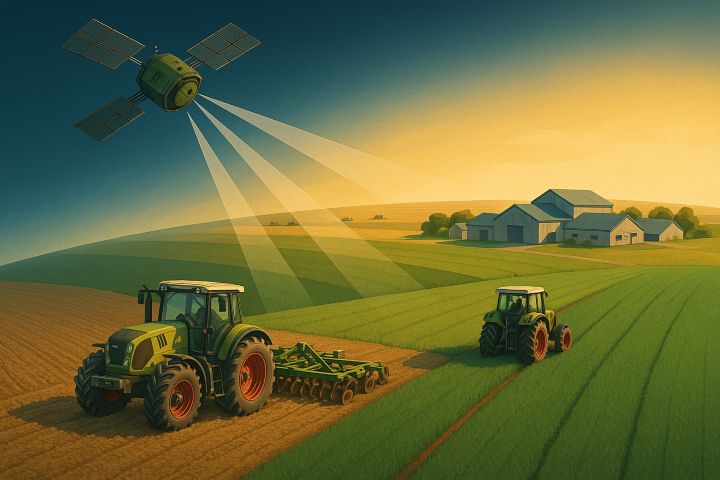This research project, a collaborative effort between Dojo Hub (SMC) Ltd and NileOrbital Aerospace Limited, alongside the Department of Computer and Communications Engineering at Makerere University, aimed to assess the viability and transformative potential of applying satellite technology to Uganda’s agricultural sector. The project was conceived as a multi-phase process, with the initial stage being an undergraduate research internship. The core objective was to address persistent challenges in the agricultural sector, such as climate variability, low productivity, and limited access to technology. This was approached through an interdisciplinary methodology that combined business, earth observation, and agricultural perspectives to understand the factors influencing the adoption of satellite applications.
The project followed a detailed, multi-step process to achieve its objectives:

The research was driven by the recognition that Uganda’s agricultural sector is the cornerstone of its economy, employing a significant portion of the working population and contributing substantially to the country’s GDP and export earnings.
Despite this, the sector faces challenges like unpredictable weather patterns, soil degradation, and pest infestations. While some digital tools exist, their adoption remains low, highlighting a significant untapped potential.
Satellite technology, with its applications in Earth observation, IoT, and remote sensing, was identified as a pivotal solution to these challenges, offering capabilities for crop health monitoring, soil analysis, yield prediction, and climate impact assessment over vast areas.
The project’s methodology was multifaceted, involving both extensive literature review and primary data collection. The literature review systematically searched academic databases like IEEE Xplore, Google Scholar, Scopus, and Web of Science, as well as industry reports and government publications, to understand the landscape of satellite technology in agriculture in Uganda and other African countries.
The data collection phase involved designing two structured questionnaires for online deployment, targeting a diverse range of stakeholders. The first survey targeted smallholder farmers, agricultural cooperatives, NGOs, and agribusinesses, while the second focused on satellite enthusiasts, academics, and space industry professionals. This was complemented by in-person interviews with farmers and key informant interviews with technical personnel from various sectors to gain insights into adoption challenges and opportunities.
A key output of the project was the development of a Lean Canvas business model and a five-year financial projection for a hypothetical startup aiming to implement satellite-based agricultural services in Uganda. The financial model projected a positive net income by the fourth year with an initial seed investment of $150,000, assuming the company could capture 0.3% of the Ugandan market over five years with a 60% annual revenue growth.
The proposed revenue streams included subscription fees, pay-per-use fees, and project consulting fees. This model was developed after a Porter’s Five Forces analysis of the proposed business, which revealed a dynamic and evolving competitive environment. The project also provided actionable, evidence-based recommendations for policymakers, government agencies, industry, and farming communities to facilitate the strategic integration of satellite technologies into Uganda’s agriculture.
The project’s findings underscore that while satellite technology holds immense potential for Uganda’s agricultural sector, its adoption is limited not by technological capability but by systemic challenges. The research identified several barriers, including policy gaps, limited technical infrastructure, low awareness, high costs, inadequate data interoperability, over-reliance on international databases, and cybersecurity risks. To overcome these, the study made strategic recommendations focusing on capacity building, collaboration and partnerships, and the development of custom, affordable service packages. This research, therefore, serves as a significant resource for facilitating Uganda’s agricultural transformation into a digitally-enabled, climate-resilient sector.